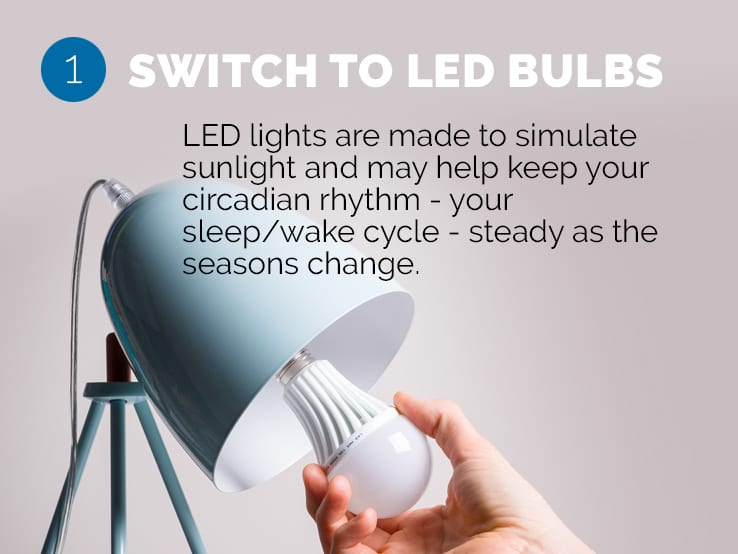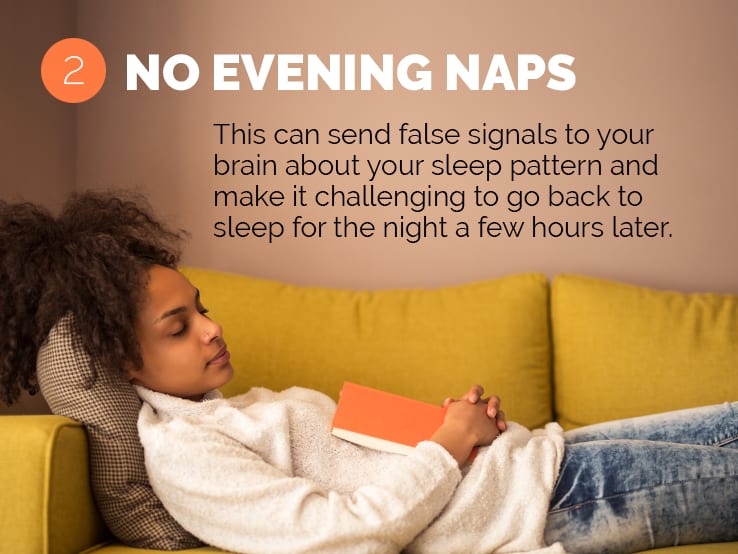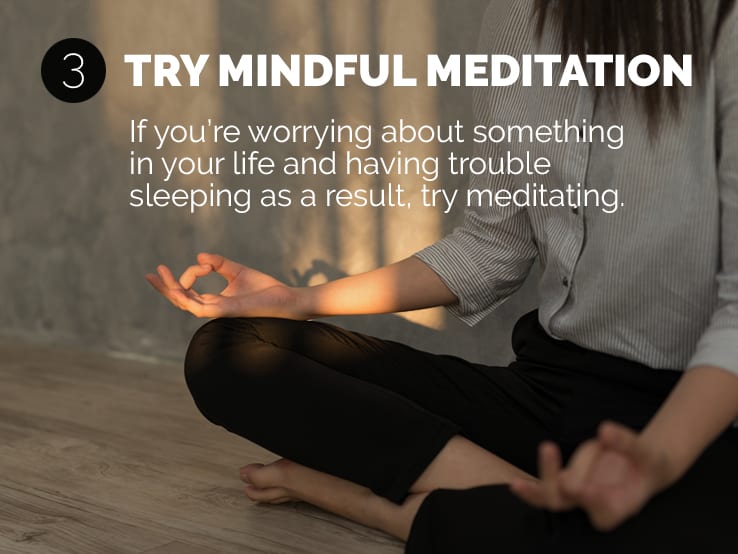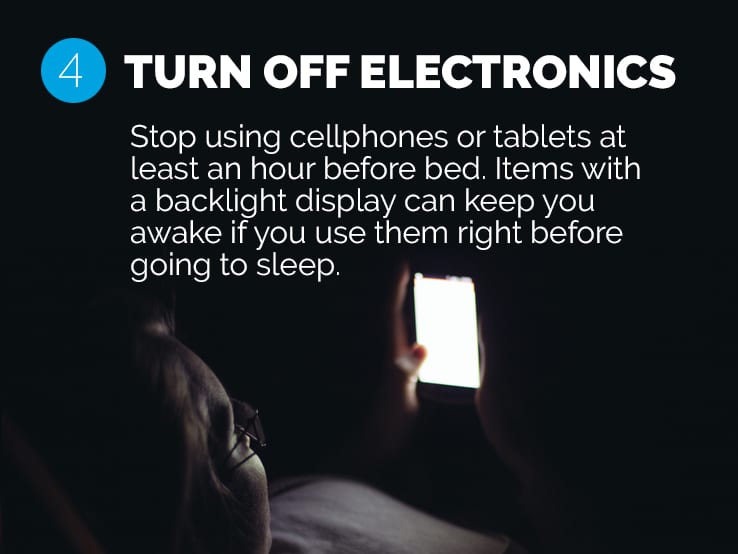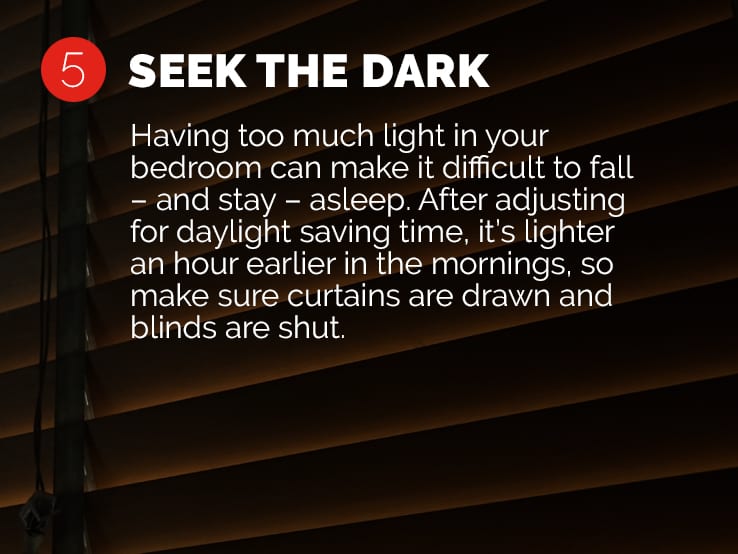How to Adjust When Daylight Saving Time Ends
Strategies to prevent shorter days and a time change from standing in the way of a good night’s rest.

If you’re waking up groggy and exhausted, you’re not alone. An estimated 50 million to 70 million Americans have a sleep or wakefulness disorder.
For many, the change from summer to fall could further impact sleep habits. That’s because, in addition to crisper air and changing leaves, fall also brings shorter days, a time change, and other factors that can negatively impact your sleep patterns, which in turn affect your reaction time, work, and overall health.
And while you may think that “falling back” and gaining an hour on November 5 will give you that extra sleep you’ve been craving, it’s not a cure-all. A study published in Sleep Medicine Reviews concluded there was “little evidence” of people getting extra sleep when clocks are adjusted for daylight saving time.
Dr. Daniel Barone, a neurologist and sleep medicine expert at the Center for Sleep Medicine at NewYork-Presbyterian/Weill Cornell Medical Center and an associate professor of neurology at Weill Cornell Medicine, says that even if we do get a little extra shut-eye that night, it likely won’t be enough to erase our overall “sleep debt.”
“We as a society sleep one hour less than we did 100 years ago,” says Dr. Barone, whose book, Let’s Talk About Sleep: A Guide to Understanding and Improving Your Slumber, was released in 2018. “So we are still ‘behind the clock’ so to speak when it comes to being sleep deprived.”
There Goes the Sun
Autumn and winter mean fewer daylight hours as the Northern Hemisphere is tilted away from the sun. This affects the body since sunlight provides it with vital vitamin D, which helps in a variety of body functions, including sleep. A lack of vitamin D is also associated with a serious condition known as seasonal affective disorder (SAD).
“When you’re not getting as much sunlight, it has an effect on your mood,” Dr. Barone says. He encourages people to be aware if they or others begin to avoid social activities or generally find it increasingly difficult to find joy in things, as these could be signs of SAD.
Here are several other habits one can adopt to ensure a better night’s rest as the seasons change as well as year-round:
The bottom line, says Dr. Barone, is that while seasonality can cause some changes in your sleep patterns, you should be alert to when trouble sleeping is a sign of a serious medical issue.
“If you’re continually waking up in the night or you’re constantly waking up tired, a sleep test is definitely warranted,” he says. While there’s an abundance of wearable technology that you can use to track your sleep, Dr. Barone cautions that he wouldn’t rely on such information to make a diagnosis.
“We should view sleep as something that’s sacred,” he says. “Our bodies are designed to get seven to nine hours. In this 24-hour society, a lot of times the amount of sleep we get suffers. We should focus on getting good quality sleep and dealing with any problems that exist.”

